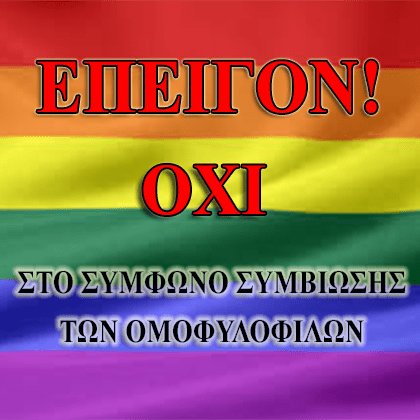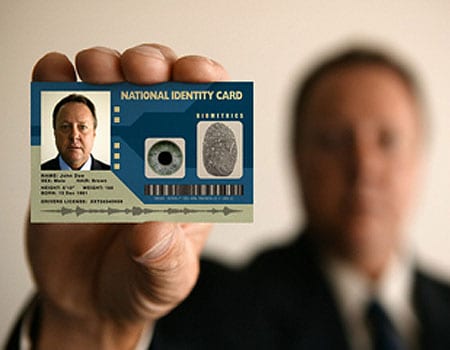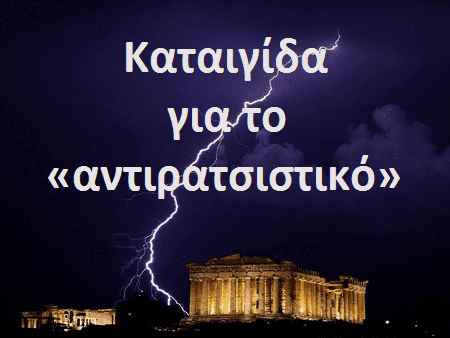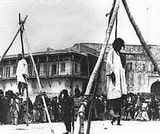ΑΜΕΡΙΚΑΝΙΚΟ ΔΙΚΑΣΤΗΡΙΟ ΚΑΤΑΔΙΚΑΖΕΙ ΧΡΗΣΗ ΧΡΙΣΤΙΑΝΙΚΗΣ ΠΙΝΑΚΙΔΑΣ ΑΥΤΟΚΙΝΗΤΟΥ !

Σημείωση TIDEON : Στην Αμερική πολλές Πολιτείες δεν έχουν οργανωμένο σύστημα που αποδίδει αριθμούς κυκλοφορίας στα αυτοκίνητα.
Στα πλαίσια της ελευθερίας της εκφράσεως της προσωπικότητος ο κάθε ιδιοκτήτης αυτοκινήτου έχει δικαίωμα να σχεδιάσει την δική του πινακίδα, να βάλει ένα χαρακτηριστικό όνομα ή αριθμό και έτσι να αναγνωρίζεται από τις δημόσιες Αρχές.
Κατά παράδοξο τρόπο όμως Δικαστήριο των ΗΠΑ επιτρέπει να βάζει ό,τι θέλει ο καθένας, εκτός από θρησκευτικά σύμβολα ..διότι αυτό τα κρίνει ως αντισυνταγματικά !!!
Πώς άραγε συμβιβάζεται με αυτή την επίκληση της αντισυνταγματικότητας η παναμερικανική επίκληση "In God we Trust" (τον Θεό εμπιστευόμαστε) που βρίσκεται σε κάθε δολλάριο;
ΙΔΟΥ ΤΟ ΑΡΘΡΟ ΤΟΥ BBC:
US judge bans Christian car plate
South Carolina's plate was similar to the one rejected for use in Florida
A US judge has ordered South Carolina not to issue a vehicle number plate with a Christian image and slogan.
The state legislature had approved a licence plate with a cross in front of a stained glass window and the words "I Believe" written along the top.
District Judge Cameron Currie said that the plate violated the First Amendment, which enshrines the separation of church and state.
A similar bid by a group in Florida last year did not pass state lawmakers.
'Unconstitutional'
The case was brought by Americans United, which backs the separation of church and state, on behalf of several individuals and Hindu and American-Arab groups.
It began after Lt Governor Andre Bauer helped pass legislation allowing the number plate in early 2008.
Describing it as a "freedom of speech issue", he argued that given the state already permitted 103 speciality vehicle plates it was "ridiculous" that there was not one for Christians.
According to local media reports, several hundred people had registered to buy the plate.
But Judge Currie ruled that the law amounted to state endorsement of a particular religion.
And she hit out at Mr Bauer, saying: "Whether motivated by sincerely-held Christian beliefs or an effort to purchase political capital with religious coin, the result is the same.
"The statute is clearly unconstitutional and defence of its implementation has embroiled the state in unnecessary (and expensive) litigation."















